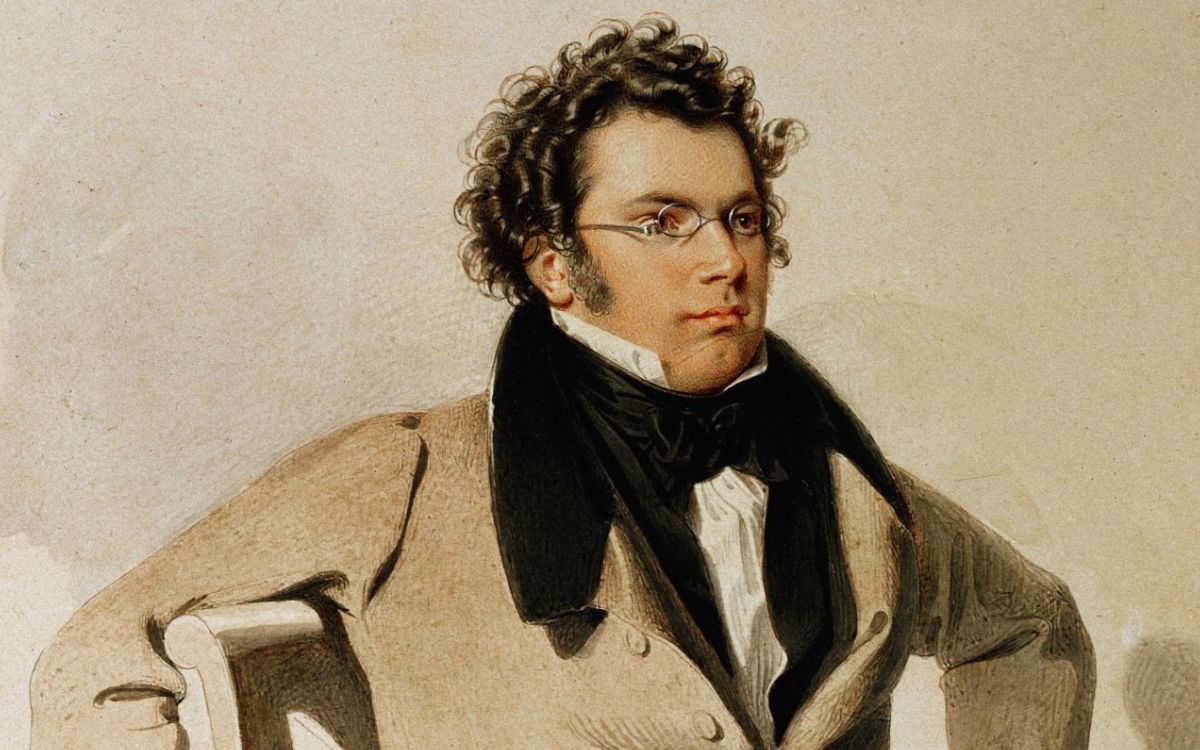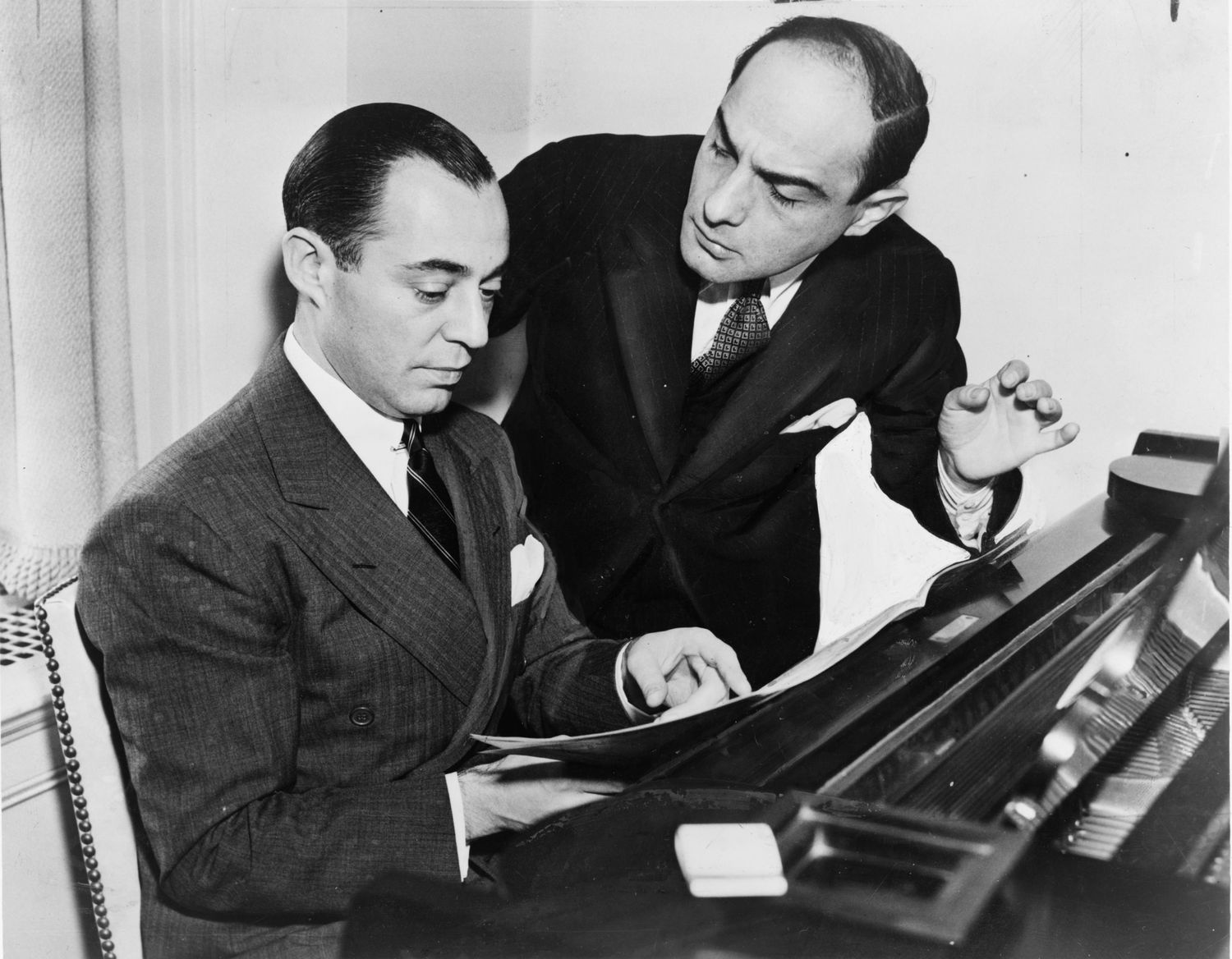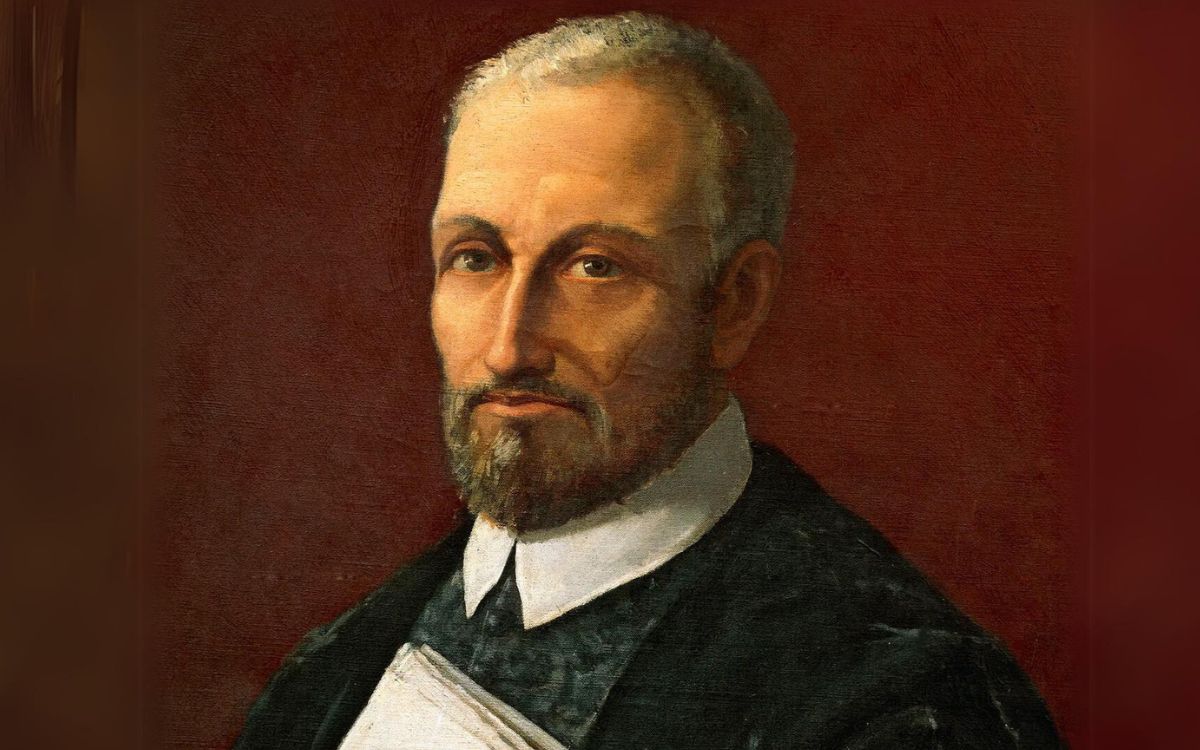Home>Production & Technology>Composer>What Nationality Was The Composer Franz Schubert


Composer
What Nationality Was The Composer Franz Schubert
Modified: January 22, 2024
Discover the nationality of the renowned composer Franz Schubert. Explore the life and works of this talented composer and unravel his cultural background.
(Many of the links in this article redirect to a specific reviewed product. Your purchase of these products through affiliate links helps to generate commission for AudioLover.com, at no extra cost. Learn more)
Table of Contents
Introduction
Franz Schubert was a remarkable composer who left a lasting impact on the world of classical music. Born on January 31, 1797, in Himmelpfortgrund, a suburb of Vienna, Schubert was regarded as one of the greatest composers of the early Romantic era. His compositions encompassed a wide range of genres, including symphonies, chamber music, lieder (art songs), and operas.
Schubert’s talent and contributions to the classical music repertoire have made him a beloved figure among musicians and music enthusiasts. However, there has been ongoing debate and speculation about his nationality, with conflicting claims suggesting that he was either Austrian or Czech.
In this article, we will delve into Schubert’s early life, musical career, notable compositions, and examine the evidence supporting both the Austrian and Czech nationality claims. By exploring this topic, we can gain a deeper understanding of the influence of nationality on Schubert’s identity and his contribution to the music world.
Early Life and Education
Franz Schubert was born into a modest family in Himmelpfortgrund, near Vienna, Austria. His father, Franz Theodor Schubert, was a schoolmaster, and his mother, Elisabeth Vietz, was a domestic servant. Schubert showed an aptitude for music at a young age, and his father recognized his talent and provided him with musical instruction.
At the age of 11, Schubert became a choirboy at the Imperial Court Chapel in Vienna, where he received a rigorous musical education. He studied piano, violin, organ, and singing, and was exposed to the works of great composers such as Mozart, Haydn, and Beethoven. Schubert’s early exposure to the richness of Viennese musical culture undoubtedly influenced his own compositions later in life.
Despite his musical talents, Schubert’s family could not afford to send him to a prestigious music academy. Instead, he attended the Stadtkonvikt, a school that provided a general education along with musical training. During his time there, Schubert continued to develop his compositional skills and began to gain recognition for his musical abilities.
While at the Stadtkonvikt, Schubert had the opportunity to study with prominent musicians, such as Antonio Salieri, who recognized his extraordinary talent. Salieri praised Schubert’s compositions and encouraged him to pursue a career in music.
Despite his early success, Schubert faced financial struggles during his education and throughout his life. He relied on the support of friends and patrons to continue his musical studies and pursue his passion for composition. His humble beginnings and perseverance in the face of adversity are a testament to his dedication and love for music.
Musical Career
After completing his education, Franz Schubert dedicated himself to a career in music. He worked as a schoolteacher to support himself financially while continuing to compose prolifically. Schubert’s remarkable output of over 600 compositions attests to his incredible work ethic and creativity.
Schubert’s musical career gained momentum when he began hosting regular gatherings known as Schubertiads. These intimate gatherings brought together friends, musicians, and admirers of Schubert’s music to share in the joy of his compositions. The Schubertiads became an important platform for Schubert to showcase his works and receive instant feedback from his peers.
During this period, Schubert’s compositions began to gain recognition and appreciation among a small circle of musicians and intellectuals in Vienna. He received praise for his mastery of melody and his ability to evoke deep emotions through his music.
Although Schubert’s music was not widely performed during his lifetime, it was highly regarded by his contemporaries. Fellow composer Robert Schumann declared Schubert the “most poetic musician who ever lived” and praised his ability to capture the human soul in his compositions.
Despite his growing reputation, Schubert struggled to secure stable employment and financial stability throughout his life. He composed in various genres, including symphonies, chamber music, and operas, and his works continued to evolve and mature with each composition.
Today, Schubert is best known for his beautiful lieder, or art songs. His lieder are characterized by their poignant melodies and expressive lyrics, and they remain an integral part of the vocal repertoire. Songs such as “Der Erlkönig” and “Ave Maria” are among his most famous and enduring compositions, showcasing his emotive and lyrical style.
Despite facing numerous personal and financial challenges, Franz Schubert’s musical career left an indelible mark on classical music. Through his innovative compositions and deeply expressive music, he paved the way for future generations of composers and continues to be celebrated as one of the greats in the history of Western music.
Compositions
Franz Schubert’s vast compositional output encompasses a wide range of genres and styles, showcasing his versatility and creativity as a composer. His compositions display a unique blend of Romantic sensibility, melodiousness, and emotional depth, which have captivated audiences for centuries.
One of Schubert’s most notable contributions to music is his collection of over 600 lieder, or art songs. These songs, set to German poetry, showcase Schubert’s ability to captivate listeners with his evocative melodies and expressive harmonies. Some of his most famous lieder include “Der Erlkönig,” “Gretchen am Spinnrade,” and “Winterreise.”
Aside from his lieder, Schubert composed a significant number of symphonies, including his well-known “Unfinished Symphony” and his Symphony No. 9, also known as the “Great C Major.” These symphonies demonstrate Schubert’s masterful orchestration and his ability to convey a wide range of emotions through music.
In addition to his vocal and orchestral compositions, Schubert contributed to chamber music with his string quartets, piano trios, and sonatas. His “Trout Quintet” is a beloved chamber work, known for its lively melodies and inventive variations.
Operas also occupied a place in Schubert’s compositional career, though they were not widely performed during his lifetime. His opera “Fierrabras” stands out for its dramatic flair and beautiful vocal writing.
Furthermore, Schubert’s instrumental music, including his piano music, is highly revered. His piano sonatas demonstrate his mastery of the instrument and his ability to create captivating musical narratives.
Overall, Schubert’s compositions have a profound emotional depth, exploring themes of love, longing, melancholy, and the human condition. His ability to infuse his music with rich melodies and heartfelt expressions has ensured his enduring legacy as one of the most significant composers of the Romantic era.
Influence and Legacy
Franz Schubert’s influence on the world of classical music cannot be overstated. His compositions, characterized by their lyrical beauty and emotional depth, have had a lasting impact on subsequent generations of composers.
During his lifetime, Schubert’s music was not widely recognized or performed on a large scale. However, his works gained popularity and admiration among a small circle of musicians and intellectuals in Vienna. It was not until after his death that his genius began to be fully recognized and celebrated.
One of Schubert’s most significant contributions lies in the development of the art song genre, or lied. His mastery of melodic and harmonic expression revolutionized the form, and his influence can be observed in the works of future composers such as Robert Schumann and Gustav Mahler.
Schubert’s compositions also played a vital role in shaping the Romantic era of music. His fusion of poetry and music in his lieder encapsulated the spirit of the Romantic movement, where emotion and individual expression took center stage.
Furthermore, Schubert’s instrumental works, such as his symphonies and chamber music, expanded the possibilities of those genres. His innovative harmonies and use of orchestration paved the way for composers who followed, such as Johannes Brahms and Anton Bruckner.
Despite his short life, Schubert’s influence continued to grow even after his death. His deep understanding of the human soul and his ability to convey complex emotions through music resonated with audiences then and continues to captivate listeners to this day.
Today, Schubert’s compositions are regularly performed in concert halls and remain a staple of the classical music repertoire. His lieder in particular are beloved by singers and audiences alike for their lyrical beauty and emotional resonance. Performances of his symphonies and chamber music continue to impress audiences with their depth and creativity.
In recognition of his contributions to the world of classical music, Franz Schubert has been honored with numerous awards and accolades. His name is synonymous with timeless melodies and profound emotions, solidifying his place among the great composers of all time.
The legacy of Franz Schubert endures through his music and his ability to touch the hearts of listeners across generations. His compositions will continue to inspire and delight audiences, ensuring that his impact on the world of music remains undeniable.
Nationality Debate
The discussion surrounding Franz Schubert’s nationality has been a topic of debate among music historians and scholars for many years. The conflicting claims suggest that Schubert was either Austrian or Czech, adding intrigue and complexity to his identity as a composer.
One of the main reasons for the nationality debate is Schubert’s place of birth. Himmelpfortgrund, where Schubert was born, is located in present-day Austria. This fact is often cited as evidence supporting the claim that Schubert was Austrian.
However, others argue that Schubert’s ancestry and cultural background indicate a Czech heritage. His father, Franz Theodor Schubert, came from a Moravian family, adding weight to the claim that Schubert may have had Czech roots.
Another aspect of the debate revolves around the linguistic influence on Schubert’s compositions. Critics suggest that the Czech language and folk traditions could have influenced his music, pointing to the occasional use of Czech folk melodies in his compositions.
Furthermore, some proponents of the Czech nationality claim highlight Schubert’s friendship with Johann Baptist Jenger, a Czech composer and conductor. They argue that Schubert’s close association with Jenger and his dedication to promoting Czech music suggest a strong connection to Czech culture.
Despite these arguments, it is important to note that there is no definitive evidence to confirm or refute either nationality claim. Schubert himself never provided any clear indication of his nationality, leaving it to speculation and interpretation.
Ultimately, the nationality debate surrounding Franz Schubert adds an intriguing layer to his already fascinating persona as a composer. It invites us to consider the diverse influences and cultural connections that may have shaped his music.
Regardless of his nationality, it is undeniable that Schubert’s contributions to the world of classical music transcend borders. His music continues to enchant audiences worldwide, reminding us that the power of his compositions lies in their universality and ability to connect with the human spirit.
Evidence suggesting Austrian Nationality
There are several pieces of evidence that support the claim that Franz Schubert was of Austrian nationality.
Firstly, Schubert was born in Himmelpfortgrund, which was then a suburb of Vienna, Austria. This geographical connection is significant, as it places Schubert within the borders of Austria at the time of his birth. It is argued that this birthplace aligns him with an Austrian identity.
In addition, Schubert’s family background also points to an Austrian heritage. His father, Franz Theodor Schubert, was an Austrian schoolmaster. While it is true that his father’s family originated from Moravia (in present-day Czech Republic), Schubert himself was born and raised in Austria, with Austrian cultural influences likely playing a role in his musical development.
Moreover, Schubert’s education took place in Vienna, where he studied at the Stadtkonvikt, a prestigious establishment that provided a musical education along with a general curriculum. This education within the Austrian capital further cements the Austrian influence on Schubert’s upbringing and artistic development.
Furthermore, the language in which Schubert primarily composed and set his lieder was German. While it is acknowledged that he occasionally used Czech folk melodies in his works, it is important to note that he primarily worked within the German musical tradition, aligning him with the broader Austrian and German compositional context of the time.
Overall, the evidence suggesting Austrian nationality for Franz Schubert lies in his birthplace, his family background, his education in Vienna, and his emphasis on German as the language for his compositions. These factors contribute to the perception that Schubert can be considered an Austrian composer, as his upbringing and cultural influences greatly reflect the context of Austria during his time.
Evidence suggesting Czech Nationality
While the debate over Franz Schubert’s nationality continues, there are compelling arguments that suggest he may have had Czech roots and a Czech nationality.
One piece of evidence is Schubert’s father, Franz Theodor Schubert, who hailed from a Moravian family. Moravia, located in present-day Czech Republic, has its own distinct culture and heritage. Supporters of the Czech nationality claim argue that Schubert’s Moravian ancestry could have influenced his identity and musical compositions.
Another point of consideration is Schubert’s friendship and close association with Johann Baptist Jenger, a Czech composer and conductor. Jenger was a strong advocate for Czech music and culture, and his influence on Schubert is believed to have had an impact on his artistic sensibilities. This connection suggests that Schubert may have had an affinity for Czech cultural traditions.
Furthermore, it has been noted that some of Schubert’s compositions exhibit elements of Czech folk music, including the use of melodies and harmonies that align with Czech musical traditions. Although Schubert primarily composed in German and was part of the Viennese musical scene, the occasional incorporation of Czech folk melodies hints at his familiarity with and appreciation for Czech musical heritage.
Additionally, Schubert’s diverse musical style and creative range could be attributed to a broader European influence, which includes the Czech musical tradition. His ability to blend different musical styles and experiment with various genres may have been shaped by exposure to the cultural diversity of his time.
While the evidence suggesting Czech nationality for Schubert may not be definitive, it provides a compelling perspective on his background and influences. The connections to his father’s Moravian roots, his relationship with Czech composers, the occasional use of Czech folk elements in his works, and the broader European cultural milieu all contribute to the argument that Schubert may have had a Czech identity alongside his Austrian connections.
Ultimately, the question of Schubert’s nationality is complex and may never be definitively resolved. However, the exploration of different perspectives allows us to appreciate the diverse influences and rich tapestry of cultural heritage that can shape a composer’s identity and artistic output.
The Impact of Nationality on Schubert’s Identity
The debate surrounding Franz Schubert’s nationality raises interesting questions about the influence of national identity on an artist’s personal and creative development. While the exact nationality of Schubert remains a topic of speculation, the exploration of this debate sheds light on the complexities of identity and the ways in which it can shape an artist’s work.
Whether Schubert was Austrian or Czech, it is clear that his cultural background played a significant role in shaping his musical style and artistic sensibilities. The cultural traditions, languages, and musical influences that surrounded him would have enriched his artistic palette and contributed to the unique flavor of his compositions.
If Schubert was indeed Austrian, his upbringing in Vienna and exposure to the works of Mozart, Haydn, and Beethoven would have had a profound impact on his musical development. The Viennese musical tradition, with its emphasis on melody and musical sophistication, would have influenced Schubert’s own compositional style.
On the other hand, if Schubert had Czech roots, his exposure to Moravian culture and the works of Czech composers like Johann Baptist Jenger may have contributed to a distinct flavor in his compositions. The infusion of Czech folk melodies and harmonies into some of Schubert’s works would be a testament to the influence of his cultural background.
Regardless of his nationality, it is clear that Schubert’s music transcends boundaries and touches the universal human experience. His ability to evoke deep emotions and capture the essence of the human condition speaks to the power of music to transcend cultural and national identities.
It is worth considering that Schubert’s creative genius may have been influenced by multiple cultural and national identities. Artists are often shaped by a multitude of experiences, and their work becomes a synthesis of various influences. In Schubert’s case, both Austrian and Czech influences could have contributed to his artistic identity, resulting in a unique musical voice.
The debate surrounding Schubert’s nationality ultimately reminds us that artistic identity is complex and multi-faceted. While nationality can shape an artist’s perspectives and provide cultural context, true creative expression often transcends borders and defies easy classification.
Franz Schubert’s musical legacy continues to captivate audiences around the world, regardless of his nationality. His compositions touch the hearts and souls of listeners, emphasizing the universality of music and its ability to forge connections and forge meaning beyond the boundaries of nationality.
Conclusion
The debate over Franz Schubert’s nationality adds an intriguing dimension to our understanding of the composer and his musical legacy. While the exact nature of his nationality may remain elusive, the exploration of this topic allows us to appreciate the multifaceted aspects of his identity and creative development.
Regardless of whether Schubert was Austrian or Czech, his music has left an indelible mark on the world of classical music. His compositions, characterized by their lyrical beauty, emotional depth, and melodic richness, continue to resonate with audiences across time and borders.
Schubert’s unique artistic voice can be attributed to a multitude of influences. His upbringing in Vienna, exposure to the Viennese musical tradition, possible Czech cultural connections, and his own creative genius all played a part in shaping his musical style.
What we must recognize is that the power of Schubert’s music lies beyond the confines of nationality. His compositions, whether rooted in Austrian or Czech influences, capture universal emotions and touch the core of the human experience. They stand as a testament to the transformative power of music and its ability to transcend cultural and national boundaries.
The exploration of Schubert’s nationality debate encourages us to appreciate the diverse influences that shape artistic identities. It reminds us that no artist exists in a vacuum, and their work is a product of the cultural milieu and personal experiences that shape their lives.
Despite the unanswered questions surrounding Schubert’s nationality, his legacy endures. His compositions continue to inspire awe and resonate with audiences around the world. Schubert’s mastery of melody, his emotional depth, and his ability to capture the essence of the human condition ensure his place as one of the greatest composers in history.
Ultimately, what matters most is not the nationality of Franz Schubert but the profound impact that his music has had and continues to have on the world of classical music. Regardless of borders or labels, his compositions remind us of the power of art to transcend physical and cultural boundaries and touch the very essence of our humanity.











